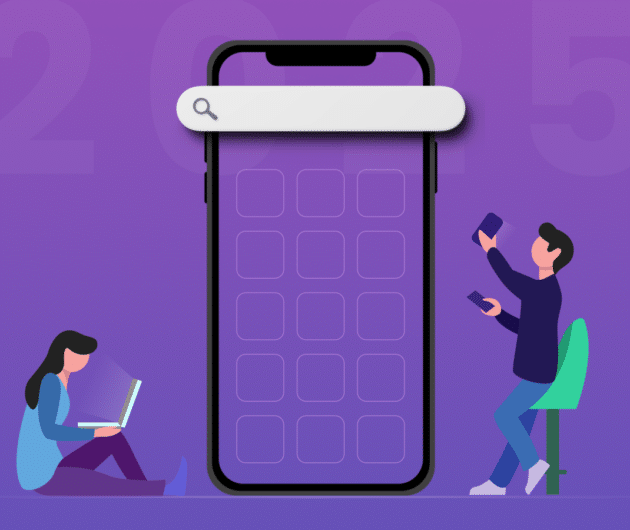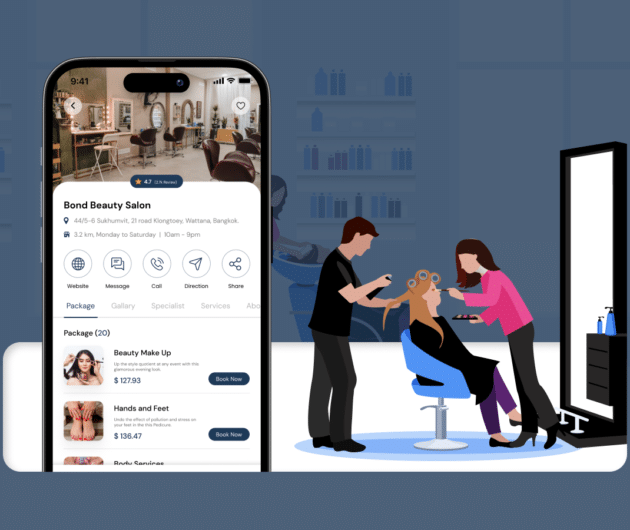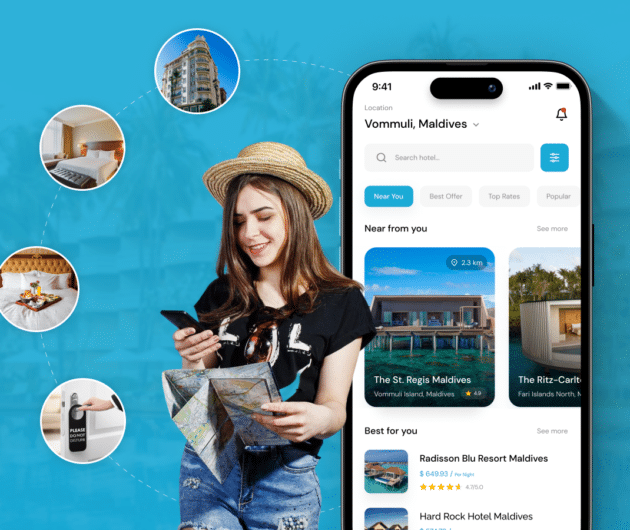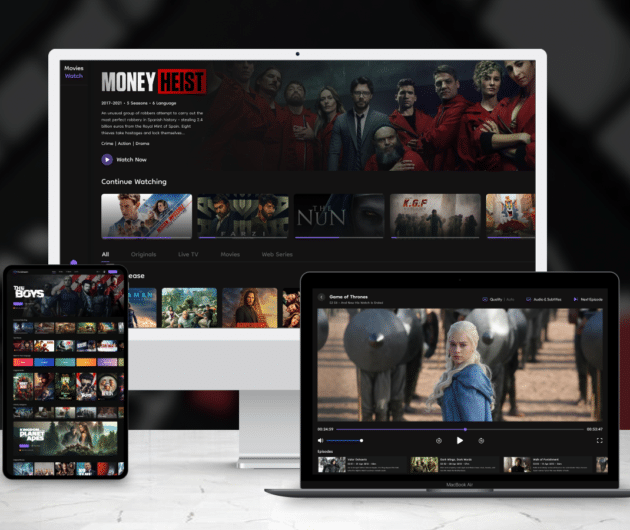The Ultimate Guide to Hotel Management Software Development
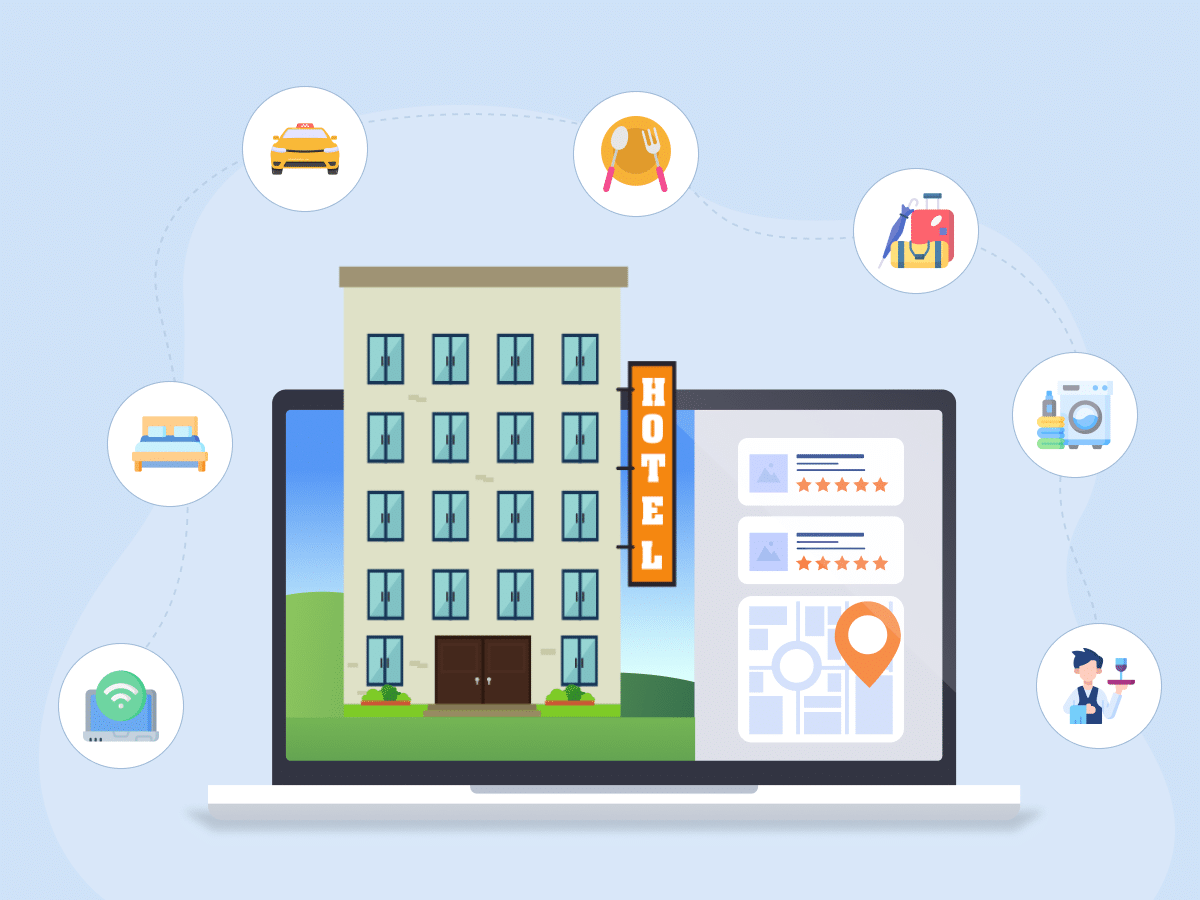
-
Ankit Patel
- September 25, 2023
- 6 min read
Imagine a scenario where the reception area of your hotel is inundated with guests seeking assistance, staff members requesting entries, and other demands. The reception team may find it overwhelming to prioritize their responses, especially when dealing with numerous registers or spreadsheets.
Wouldn’t it be fantastic to have a centralized hotel management system (HMS) that streamlines all these tasks seamlessly? This system would have modules dedicated to each hotel task, allowing different teams to accomplish their responsibilities efficiently.
If this appeals to you, it’s time to explore the creation of custom hotel management software that meets your business needs. However, building a top-notch hotel management system requires in-depth knowledge of various aspects.
Don’t worry! We have prepared a comprehensive guide to developing hotel management software. This blog covers everything you need to know, including types, features, development processes, cost analysis, and more.
What is a Hotel Management System?
A hotel management system is a software application that helps hotel owners and managers manage various aspects of their business operations, such as reservations, check-in and check-out, billing, inventory, housekeeping, marketing, and customer service. A cloud-based HMS can also integrate with other systems, such as online travel agencies (OTAs), payment gateways, accounting software, and social media platforms, to streamline the workflow and increase efficiency.
With end-to-end hotel management software, you can manage processes like reservations, staff, inventory, billing, and more all in one place. This means that regardless of the booking platform, you receive reservation notifications right into your all-in-one system.
Hotel Management Statistics
The hotel industry is a large and important sector of the global economy, contributing trillions of dollars to GDP and employing millions of people. The industry has been hit hard by the COVID-19 pandemic, but it is now recovering.
- According to IBIS World, the market size of the global hotels and resorts industry is expected to reach $1.5 trillion by 2023.
- The global hotel revenue is expected to reach $410 billion in 2023.
- The most popular tourist destinations in the world are Paris, Rome, London, and New York City.
Different Types of Hotel Management Software Available
There are different types of HMS systems available in the market, depending on the size, scope, and needs of the hotel business. Some of the common types are:
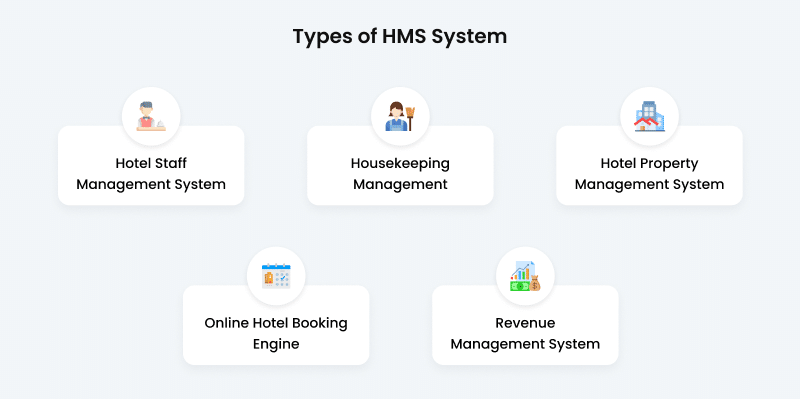
• Hotel Staff Management System
A hotel staff management system is software that helps you manage your hotel’s large and diverse workforce. You can use it to create an HRMS with HRA, daily reporting, and other features to assign and monitor tasks, and manage employees.
• Housekeeping Management
This system helps you manage your hotel’s cleanliness and hygiene standards. You can use it to schedule and allocate cleaning jobs to your housekeeping staff, and track their progress and status.
• Hotel Property Management System (PMS)
A hotel property management system is software that helps you manage your hotel’s core operations. You can use it to handle front desk operations, such as booking, check-in and check-out, room assignment, billing, and reporting.
• Online Hotel Booking Engine
An online hotel booking engine is software that helps you start a hotel-related business. You can use it to create a platform where hotel owners can list their properties and receive bookings from travelers. You can also earn commissions and fees from each transaction.
• Revenue Management System
A revenue management system is software that helps you optimize your hotel’s pricing strategy. You can use it to analyze various factors, such as demand, supply, seasonality, events, and customer behavior, and suggest the best room rates for different segments and channels.
Also check: How Much It Will Cost To Develop POS System?
Benefits of Building a Hotel Management Software
Developing a hotel management software can provide many benefits for your hotel business, such as:
- Improving operational efficiency: One of the benefits of hotel management software development is that it can improve your operational efficiency. This means that you can automate and streamline various tasks and processes involved in running a hotel business, such as booking, check-in and check-out, billing, inventory, housekeeping, marketing, and customer service.
- Increasing customer satisfaction: Online hotel booking platforms provide a seamless and convenient booking experience for customers across multiple channels. By building your HMS system you can attract more bookings and increase occupancy. You can also offer personalized services and offers based on customer data and preferences to improve customer loyalty and retention.
- Boosting revenue: Building a custom hotel management software can boost your revenue. By optimizing your pricing strategy based on market demand and supply, you can increase your average daily rate (ADR) and revenue per available room (RevPAR). You can also upsell and cross-sell additional services and products to your customers to increase your revenue per guest (RPG).
Also check: Travel App Development – Cost, Benefits, Features
Must-Have Features to Implement in a Hotel Management System
The features that you should integrate into your hotel management system depend on the type of software you are building and the specific needs of your hotel business. It helps streamline operations, enhance guest satisfaction, and improve overall management. However, some of the essential features that you should consider are:
• Reservation Management
This feature allows you to manage all of your reservations, including online bookings, walk-ins, group bookings, and phone or email bookings. You should be able to view, modify, cancel, and confirm reservations and send confirmation emails or SMS to your customers.
• Check-in and Check-out Management
This feature allows you to manage the arrival and departure of your guests. You should be able to assign rooms, collect payments, issue invoices or receipts, and generate reports. You should also be able to handle late check-ins or check-outs, early check-ins or check-outs, and no-shows.
• Room Management
It allows you to manage various room-related hotel management tasks like your room inventory, availability, and status. You should be able to add, edit, or delete rooms, as well as assign room types, amenities, and rates. You should also be able to view room occupancy, housekeeping status, and maintenance issues.
• Billing and Payment Management
This feature allows you to manage your revenue and expenses. You should be able to create and send invoices or receipts to your customers, as well as collect payments via cash, credit card, or online payment gateway. You should also be able to track and record your income and expenditure, as well as generate financial reports.
• Customer Management
With Hotel CRM, you should be able to create and update customer profiles, as well as store customer contact details, preferences, feedback, and loyalty status. You should also be able to segment your customers based on various criteria, such as demographics, behavior, or value.
• Reporting and Analytics
This feature allows you to monitor and measure your business performance. You should be able to generate and view various reports and dashboards, such as occupancy rate, ADR, RevPAR, RPG, customer satisfaction, and revenue sources. You should also be able to filter and export the data for further analysis or presentation.
Also check: How Cloud-Based Mobile ERP Revolutionizes Modern Enterprises?
Hotel Management Software Development: A Step-by-Step Guide
Building a HMS system is a complex project that requires careful planning and execution. Here is a step-by-step process to help you get started:
Step 1: Define Your Project Scope and Requirements
You should identify the goals, features, functions, and specifications of your hotel management software. You should also determine the budget, timeline, resources, and stakeholders of your project.
Step 2: Choose a Development Approach and Technology Stack
You should decide whether to build your hotel software from scratch, use an existing platform or framework, or outsource it to a third-party vendor. You should also select the appropriate programming languages, frameworks, libraries, tools, databases, servers, hosting services, etc., for your project.
Step 3: Designing Architecture and UI/UX
You should create a blueprint of how your software will work internally and externally. You should define the components, modules, interfaces, interactions, data flows, etc. It also includes the creation of wireframes, mockups, prototypes, etc., of how your system will look visually.
Step 4: Develop Code and Functionality
You should write the code for each feature and function of your software development according to the design specifications. You should also test the code for any errors or bugs using various testing methods, such as unit testing, integration testing, system testing, etc.
Step 5: Deploy Your App or Software
You should launch your software product on the target platform or environment. You should also monitor the performance and feedback of your hotel management software product using various tools, such as analytics tools, feedback tools, etc.

Cost to Build Hotel Management System
The cost of building end-to-end hotel management software can vary significantly depending on several key factors. To determine the accurate budget, you should take into account the following factors:
- Project complexity
- features and functionality required
- Team size and expertise
- The geographic location of the company you choose
- Technology stack
- Security and compliance
- Maintenance and updates
Given the wide range of factors involved, it can be challenging to provide an estimation for the cost without knowing your specific requirements. It’s worth noting that hourly pricing for dedicated hiring can vary by region, as shown in the table below.
| Region | Hourly Rate Range |
| North America | $50 – $120 |
| Latin America | $20 – $50 |
| Europe | $30 – $70 |
| Middle East | $40 – $70 |
| Asian Countries | $20 – $40 |
However, if we have to provide an estimated budget, the cost of top-notch hotel management software and its accompanying mobile app would be around $15,000 to $40,000. However, the final price can vary depending on the specific features and requirements of each client.
Wrapping Up
The development of a hotel management system holds the potential to unlock numerous advantages for your company. Many hotel businesses similar to yours have already achieved remarkable success, and there’s every reason to believe that you can too. It all begins with the creation of a hotel management system and the identification of the right software development agency.
Look no further for your ideal hotel technology partner than XongoLab. We are your comprehensive solution for all your end-to-end digital hotel technology needs, from initial requirements to design and long-term development partnerships aimed at elevating your hotel system. Share your requirements with us today, and we will deliver the finest hotel software solution tailored to your needs.
You may also like
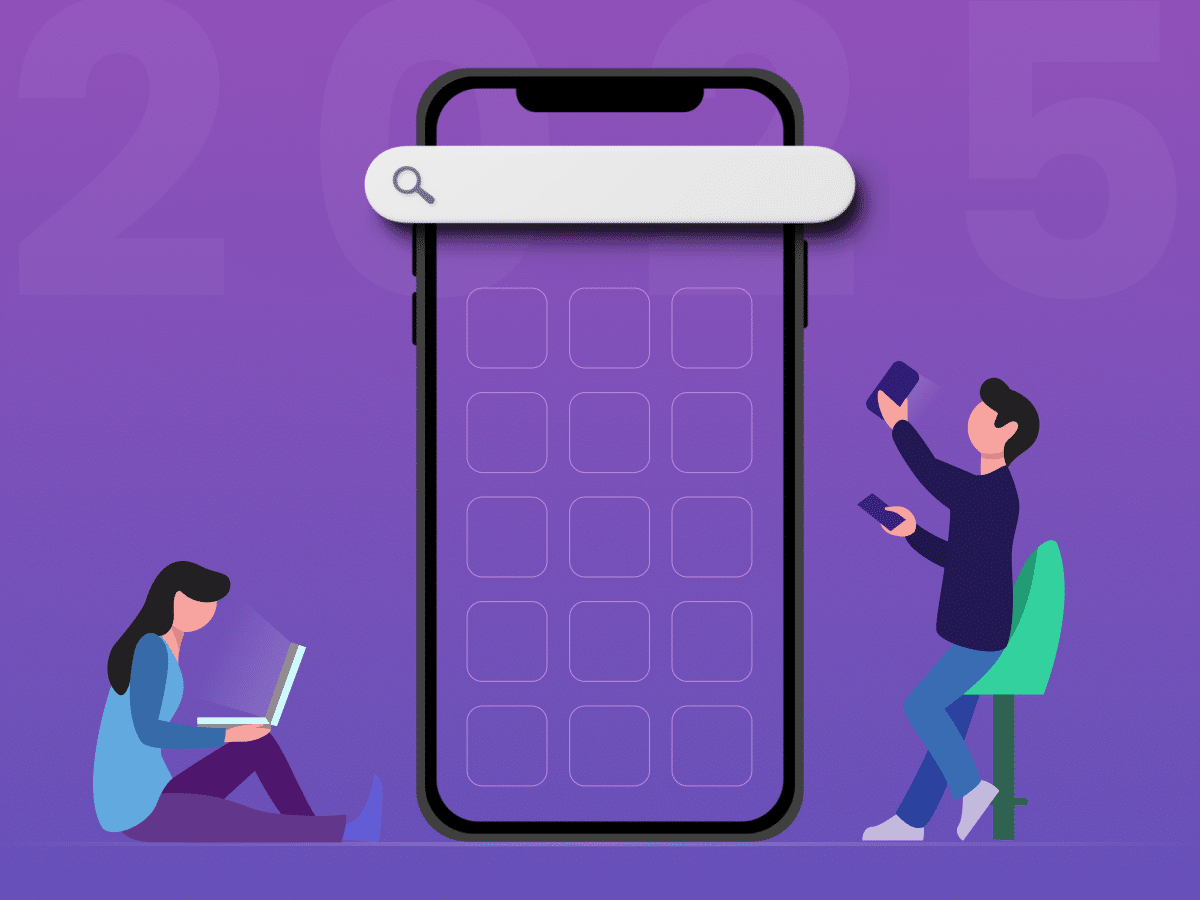
How to Choose the Right Mobile App Development Company
-
Ankit Patel
Imagine this: you’ve got a brilliant app idea that could revolutionize your business, take it to new heights, and transform your entire customer experience. But without the right team to… Read More
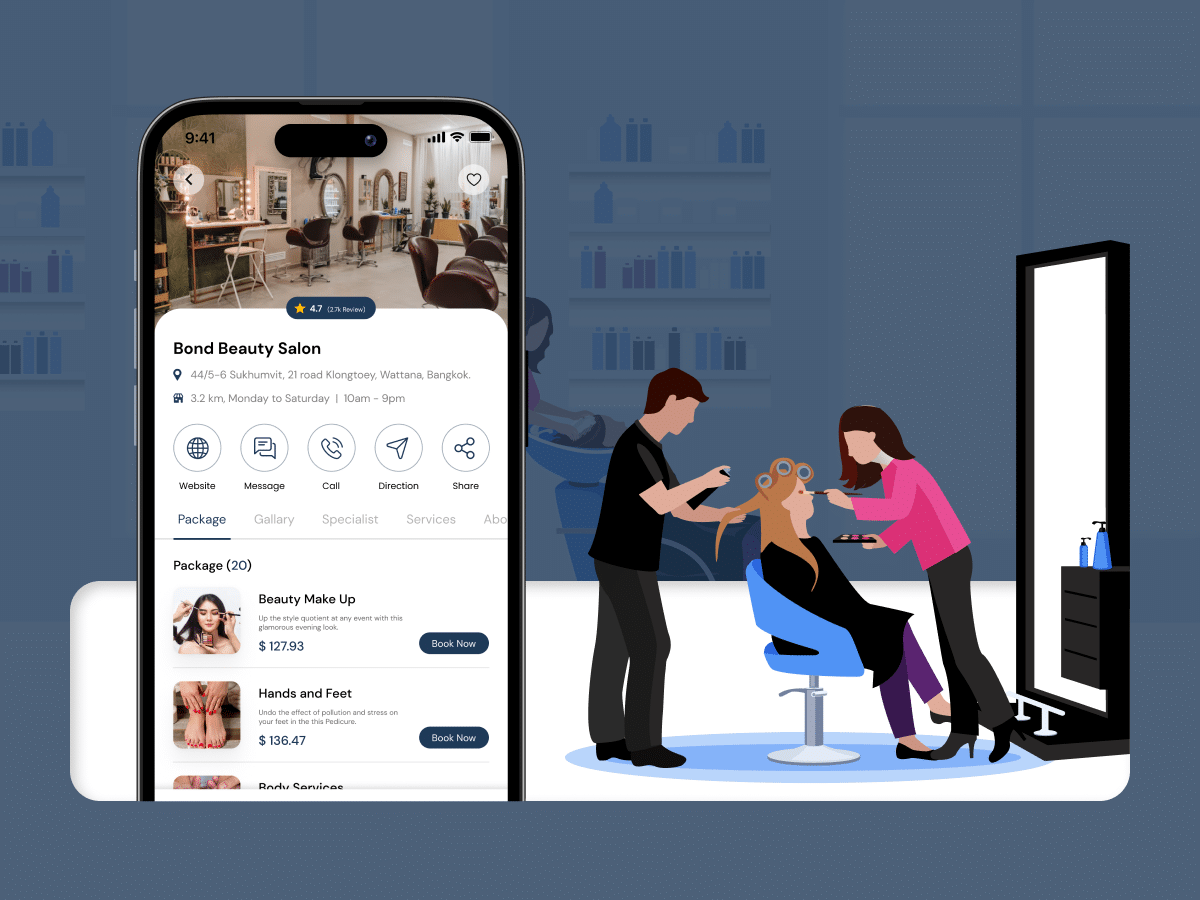
How Much Does it Cost to Build a Salon Booking App like Fresha?
-
Ankit Patel
We all have witnessed the buzz in the world of beauty & wellness, and it’s booming every day thanks to the fast-paced and stressful lifestyle. In an era where time… Read More
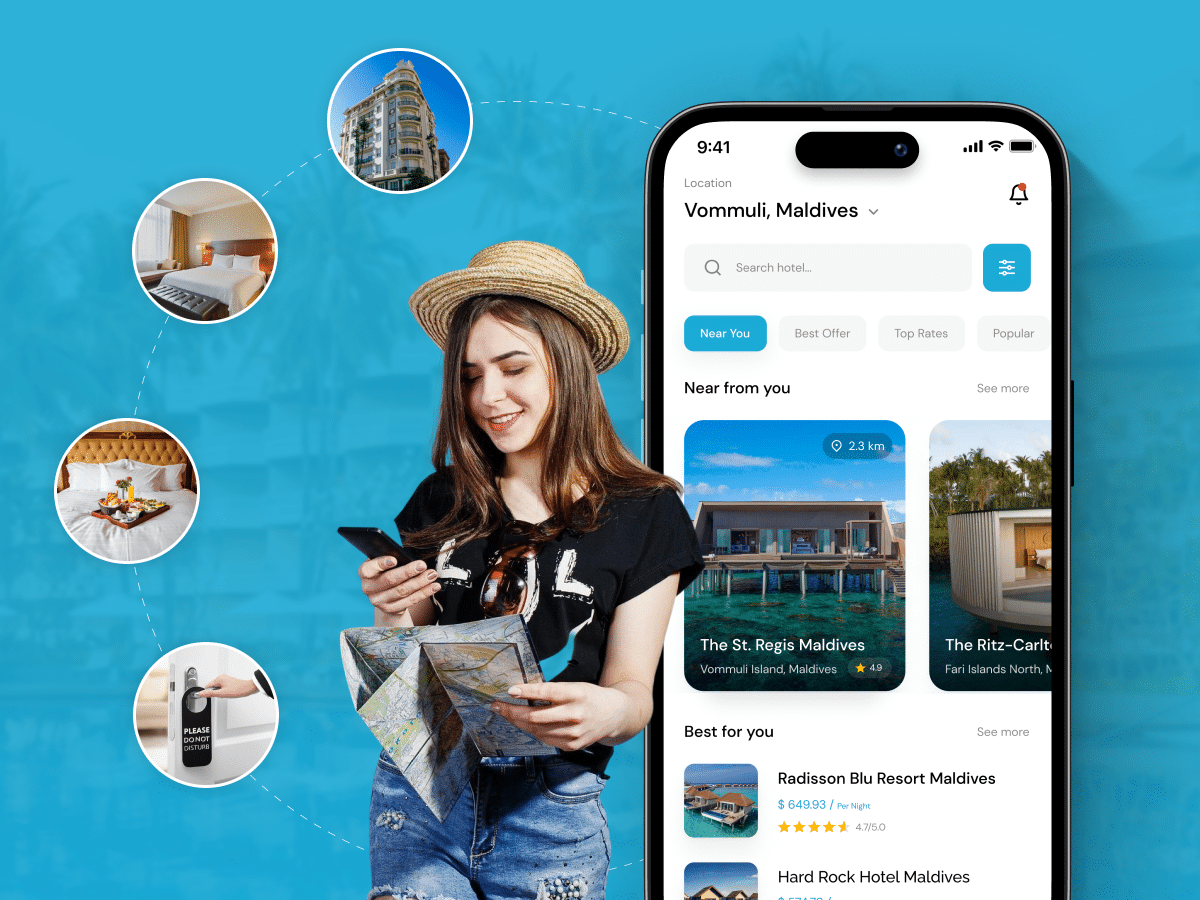
A Complete Guide to Hotel Booking App Development With Cost
-
Ankit Patel
Whether it’s a corporate business trip or a relaxing vacation with friends, finding the right hotel at the right time and a seamless hotel booking experience is not a luxury… Read More

